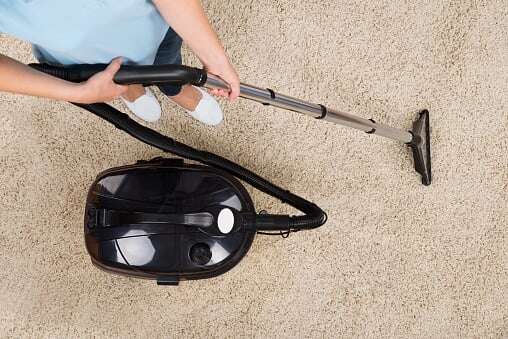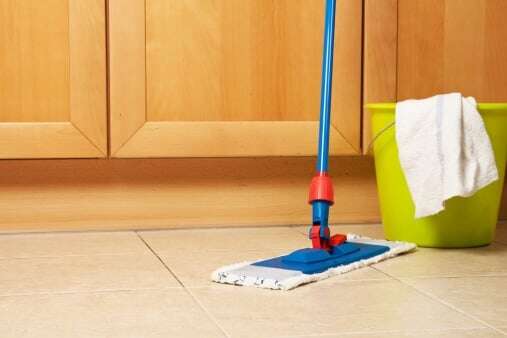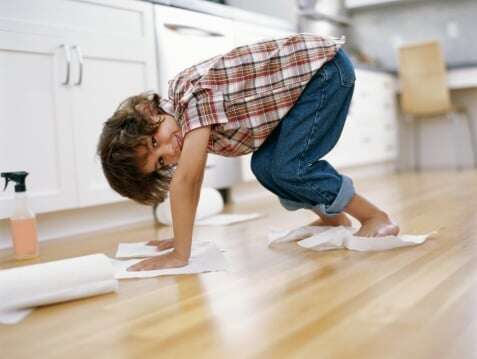 Unlike an air conditioner that is leaking water, a furnace burner flame that has changed from blue to yellow or even a furnace filter that is obviously clogged with lint and dust, it can be difficult to tell when air ducts may need to be cleaned.
Unlike an air conditioner that is leaking water, a furnace burner flame that has changed from blue to yellow or even a furnace filter that is obviously clogged with lint and dust, it can be difficult to tell when air ducts may need to be cleaned.
For most people, seeing is believing, and since you can't climb down into the deep recesses and twists and turns in your home's ducts, how do you know for sure that they're dirty?
Unfortunately, many unscrupulous contractors have leveraged this reality into a fear tactic, literally scaring homeowners into a home maintenance function they may not need.
At Experts In Your Home, our loyal customers know that we deal only in the facts and turn to the experts to help us dispense reliable, trustworthy information. Since the task itself is often misrepresented, we open our answer with a quick explanation of what duct cleaning involves – straight from the U.S. Environmental Protection Agency.
Duct cleaning explained
“Duct cleaning generally refers to the cleaning of various heating and cooling system components of forced air systems, including the supply and return air ducts and registers, grilles and diffusers, heat exchangers, heating and cooling coils, condensate drain pans (drip pans), fan motor and fan housing and the air handling unit housing,” the agency says.
If these important components are not properly maintained, they “may become contaminated with particles of dust, pollen or other debris. If moisture is present, the potential for microbiological growth (e.g., mold) is increased and spores from such growth may be released into the home's living space.”
Most often, a contractor will use specialized tools to dislodge the mess, then follow up with a high-powered vacuum cleaner. When appropriate, the contractor provider might recommend an application of chemical biocides to kill mold or a sealant to prevent it from growing back.
EPA admonitions
Though the EPA walks an objective line on the issue of duct cleaning, it's also true that it stirred considerable anxiety among many Americans when it announced in 2013 that indoor air pollutants may be two to five times higher – and sometimes even 100 times higher – than outdoor air pollutants. Even though most Americans spend about 90 percent of their time indoors, many turned off their TV long enough to look around to see what they could do to improve the air quality in their homes.
A homeowner might turn to duct cleaning, the EPA says, if:
- Substantial mold growth is detected inside the ducts or on other HVAC components
- A dusty remodeling project has just been completed
- Insects or rodents have taken refuge in the ducts
- “Ducts are clogged with excessive amounts of dust and debris and/or particles are actually released into the home from your supply registers”
A personal choice
Still, in practically the next breath (no pun intended), the EPA notes that “much of the dirt that may accumulate inside air ducts adheres to duct surfaces and does not necessarily enter the living space.”
So what is a homeowner to conclude? Try to regard duct cleaning of your heating and air conditioning system as a personal choice rather than a source of frustration, especially because the plot thickens.
The EPA recommends that homeowners check for evidence of dust in the ducts around the registers, but then says “it's normal for the return registers to get dusty as dust-laden air is pulled through the grate.”
It also frames duct cleaning as a viable option if there are “unusual or unexplained symptoms or illnesses that you think might be related to your home environment,” but then goes on to accurately point out that no scientific evidence exists to link duct cleaning to better health.
At this point, you might be curious to hear what the National Air Duct Cleaners Association recommends. (Those unscrupulous contractors should.) Interestingly, its president, Buck Sheppard, says most homeowners should have their ducts cleaned only once every three to five years. But even this benchmark depends on a home's environmental conditions, such as if someone smokes or you have a furry pet or pets, or if someone in your home suffers from asthma or allergies.
Even people who subscribe to the “seeing is believing” maxim may throw up their hands and agree that the ubiquitous nature of dust trumps visible proof. They may reason that if dust settles everywhere else in their home – from the top of the refrigerator to the base of the dining room table – why should their ducts be spared? And when their heating and air conditioning system turns on, it channels warm or cool air right through the ducts, carrying with it at least a semblance of the dust and debris that has settled there. Or at least it seems logical to assume so.
An in-home consultation may clear up your own indecision about duct cleaning. Contact Experts In Your Home for an appointment and we'll inspect your home and help you arrive at your own logical conclusion. We serve Chico, Paradise, Oroville and surrounding areas.
Proper maintenance is important, but what if your heating system breaks? Download the free offer below to learn the questions you should ask.








